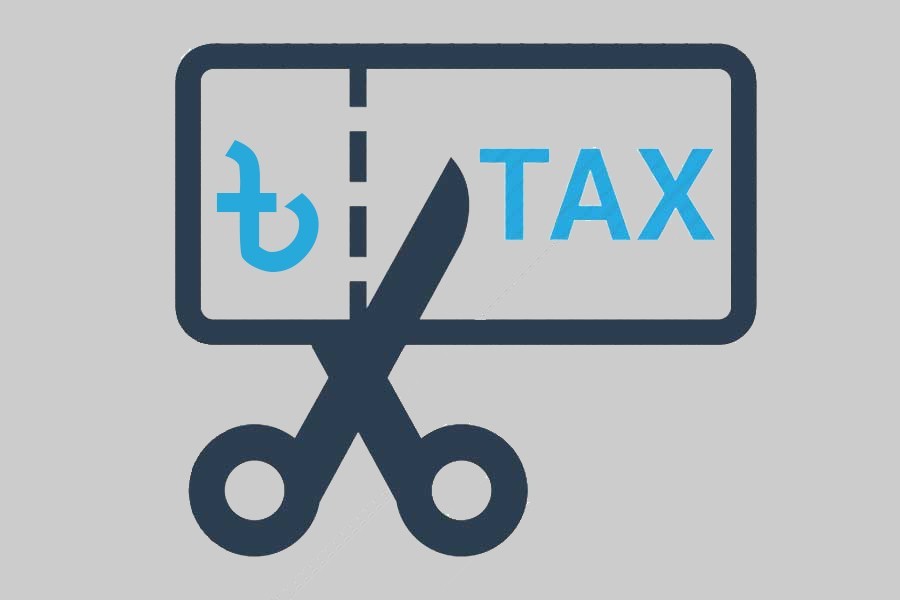Lower taxes on essential commodities for both import and domestic levels to contain the wayward inflation, economists suggest the government as prices spike.
While presenting their budget proposals at a pre-budget consultation Wednesday, they made the recommendation for reducing the duties and taxes as one measure for managing bullish price indices to provide some respite to lower-and limited-income consumers.
Present at the meet at the National Board of Revenue (NBR) were representatives of the Centre for Policy Dialogue (CPD), the Policy Research Institute (PRI), Bangladesh Economic Association (BEA), Bangladesh Institute of Development Studies (BIDS), Pricewaterhousec-oopers, Snehashish Mahmud & Co, who placed their respective budget proposals.
In a major recommendation the CPD proposed discontinuation of the existing provisions for legalising undisclosed incomes which economists think distort normal course of economy and market.
To tackle the problem of undisclosed income, a Benami Property Bill may be introduced in parliament, it suggests.

The CPD also proposed reinstating the highest rate of personal income tax (PIT) to 30 per cent for top earners in the fiscal year (FY) 2022-23 budget and upward adjustment of tax-free ceiling to Tk 350,000 considering the added pressure of the rising food inflation and income erosion induced by the pandemic.
"The second slab for PIT, which is 5 per cent for additional Tk 0.1 million, should be increased to Tk 0.3 million to provide cushion to low-income earners."
It proposed fixing 30-per cent tax for one-person companies in line with the non-publicly traded companies' rates.
"VAT on English-medium schools should be removed completely and immediately," says the CPD in its budget proposal.
"Education is not a luxury good, but a merit good which should be encouraged with subsidies and incentives, if possible."
In Bangladesh, cigarette industry's pricing encourages purchase of relatively cheaper cigarettes.
For tobacco and tobacco-related products, the government should eliminate the tiers of taxation and replace them with a single system.
"…uniform specific tax on all tobacco products should be increased by at least 10 per cent each year," the policy researcher says on taxation policy.
It says there should be a medium-term plan as regards phasing out the various tax exemptions provided in view of the pandemic.
The larger industries should be under faster phasing-out process.
The CPD stresses that the NBR should introduce taxes for proxies for pollution by tax region as has been mentioned in the 'Public Financial Management (PFM) Action Plan 2018-2023 to implement The PFM Reform Strategy 2016-2021'.
This, it thinks, will provide the NBR a new and desirable source of tax revenues.
For the upcoming FY2023 budget, a viable completion timeline should be chalked out for reforms which are already under consideration (eg, Customs Act and Direct Tax Act) so that the implementation process can be set off as early as possible.
Dr Ahsan H Mansur, executive director of the Policy Research Institute, said Bangladesh would have to face challenges after graduation.
He suggests focusing on bilateral free trade and changing the higher-level-of-protection policy.
He recommends expansionary budget in the fiscal year 2022-23 instead of contractionary one to ensure proper distribution of income, money and resources.
BEA president Prof Abul Barakat submitted a written proposal in the meeting, in which the association economists proposed increasing the wealth tax rather than raising the direct tax burden on the poor.
PwC proposed a technical update on the e-TIN application system to allow foreign companies (with no local presence) to apply for e-TIN and foreign citizens to opt to apply to e-TIN without the mandatory requirement to quote the work-permit registration number.
It also wants a provision to be incorporated into the income tax law to specify the mechanism and the extent to which income from transactions through electronic means would be taxed in Bangladesh.
Snehasish Mahmud & Co, a renewed chartered accountant firm, recommended making e-TIN mandatory at the time of payment of holding tax. Currently, it is applicable to trade licensing.
It says individuals are not disclosing assets even though paying holding/municipality taxes.
The firm finds no linkage between the NBR and other government authorities to reconcile information of taxpayers reported in TIN.


